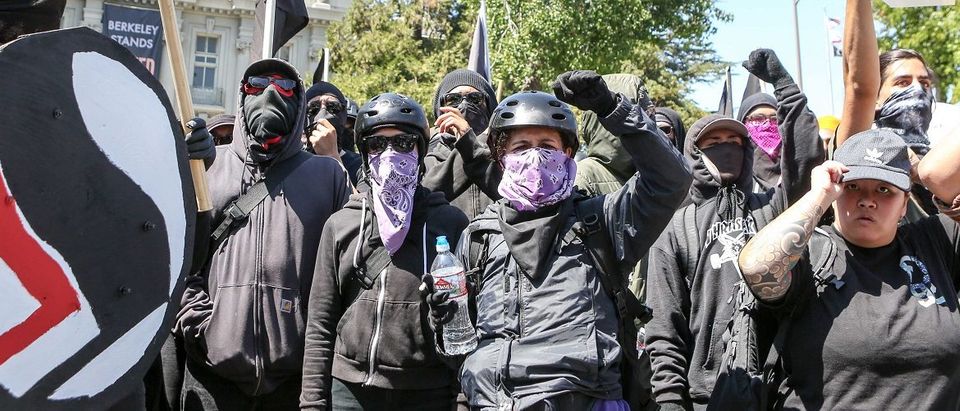A professor of education at the University of Southern California claims that punishing protesters who disrupt conservative speakers on campus is a form of reinforcing “white supremacy.”
Professor Charles H.F. Davis, who is also the Chief Strategy Officer for the USC Race and Equity Center, argued in an essay published by Inside Higher Ed last week that when university sanctions its students for shutting down speaking events, the punishment contributes to white supremacy because it can unfairly “suppress and criminalize” them, especially because their actions are in the service of social justice.
To cite an example, Davis said that students who disrupted a recent speech by conservative speaker Ben Shapiro at the University of Wisconsin-Madison shouldn’t be punished because they were fighting against “racist rhetoric advanced by Shapiro.”
It’s worth noting that Shapiro was at the university to speak against political violence and the suppression of free speech from both extremes of the political spectrum.
Davis told Campus Reform that colleges that punish protesters “run the risk of creating an unsafe and threatening environment.” The professor defines protesters as those who “use disruptive tactics to shut down hate speech as well as those holding signs, protesting outside of speaker venues, and engaged in other forms of resistance against white supremacy.”
The protesters Davis refers to often employ violence in their efforts to silence and censor speakers with whom they disagree, effectively performing what’s known as the “heckler’s veto.”
Earlier this year, protesters in Middlebury College assaulted political scientist Charles Murray and the professor who hosted his speech, Allison Stanger. In February, conservative firebrand Milo Yiannopoulos was driven from UC Berkeley following a riot by student protesters — some of whom are members of Antifa.
Davis argues that students who protest are “disproportionately students of color and students representing other marginalized groups,” meaning LGBTQ students. “Issuing a punishment, especially in these cases, is a clear form of criminalization by deeming protest unacceptable.”
In other words, Davis is arguing for protesters to be given special privileges because of their ethnicity and gender.
Even though the First Amendment exists to protect all forms of speech, Davis — like many others on the Left — argues that colleges must “Resist the constant conflation of hate speech and free speech.” He says that censorship of “hate speech” is justified because it is “violent and invites violence, which should not be allowed on campus.”
Davis did not explain how Ben Shapiro’s speech against violence or Milo Yiannopoulos’ speeches condemning identity politics constitute violence or an invitation for violence.
Instead of punishing protesters, Davis says schools should “spend substantive time” listening to their complaints.
“By taking up a punitive approach to what is clearly a demand for greater racial equity and inclusion, administrators demonstrate they are more concerned with criminalizing those who labor in the name of justice than addressing real issues with material consequences for students of color,” he concluded.
Ian Miles Cheong is a journalist and outspoken media critic. You can reach him through social media at @stillgray on Twitter and on Facebook.


